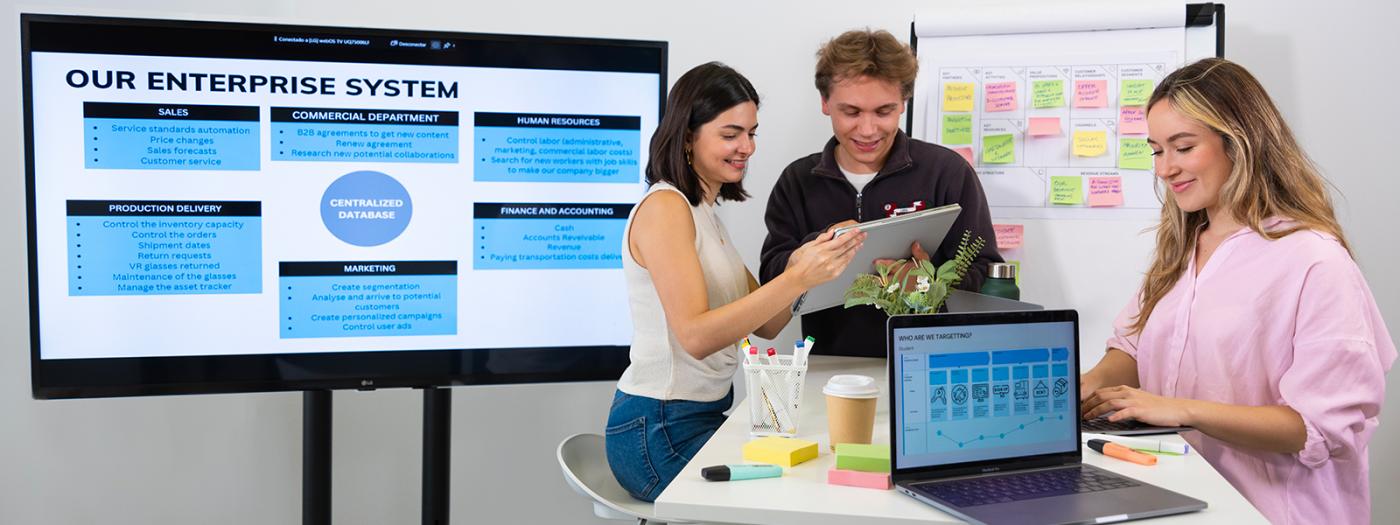This course is an introduction to concepts of financial accounting and managerial accounting. In the first part of the course emphasis is placed on studying the accounting cycle, the balance sheet, the income statement, the statement of retained earnings, and the statement of cash flows. The second part of the course uses financial and managerial accounting for decision-making, from external and internal perspective, respectively. At the end of this academic term, students will have completed accounting training.
They will be instructed and assisted in:
1) Understanding the importance of accounting practice in the business environment.
2) Understanding the most important accounting principles both from a theoretical as well as from a practical viewpoint.
3) Learning how to record economic events in the business entity on a day-to-day basis by mastering the basic bookkeeping techniques.
4) Preparing the basic financial statements in order to report the business' results.
5) Using financial statements in order to evaluate the company's state of affairs and performance and make decisions.
6) Learning the practical application of cost-volume-profit relationships used to improve corporate earnings by optimizing price and cost structures.
7) Learning the practical application of incremental analysis for optimal use of the company's resources in the short term.
Titular Professors
On the completion of this course students should be able to:
- Understand the basic accounting concepts and thus be able to record all the economic transactions of a business.
- Prepare basic financial statements using the accounting information previously recorded.
- Understand the dynamics and implications of the company's operating cycle.
- Know the relevance of cash flows and the interpretation of financial statements.
- Understand the concepts of costing and monitoring of use of the company's resources.
- Use cost volume profit analysis to identify breakeven and reach target profits.
- Understand the concepts of opportunity costs, sunk costs and out-of-pocket costs and implications of incremental revenues vs incremental costs trade-off.
Topics 1 and 2 - Introduction to Accounting and Basic Financial Statements
Topic 3 - The Accounting Cycle: Capturing Economic Events
Topic 4 - Accruals and Deferrals
Topic 5 - Reporting Financial Results
Topic 6 - Merchandising Activities
Topic 7 - Statement of Cash Flows
Topic 8 - Financial Statement Analysis
Topic 9 - Introduction to Management Accounting
Topic 10 - Cost-Volume-Profit Analysis
Topic 11 - Incremental Analysis
The class sessions will consist of one-hour lecture time and two solving problems and group project. The first session will be devoted to solving the homework cases assigned in the previous session and clearing doubts. The second session will be lecture time and solving cases based on the lecture material thus preparing the students for the homework. Lectures will follow closely the structure and content set out in the required textbook.
The course grade will be based on the following point breakdown:
Attendance and participation (including preparation of homework): 20%
Group project: 20%
Midterm exam: 30%
Final exam: 30%
All exams are open book. The students may use the paper copy of the textbook for reference during the exam. No digital copies are permitted or the use of laptops during exams.
Williams, Haka, Bettner, & Carcello. (2018). Financial & Managerial Accounting (18th ed.). New York, NY: McGraw-Hill
